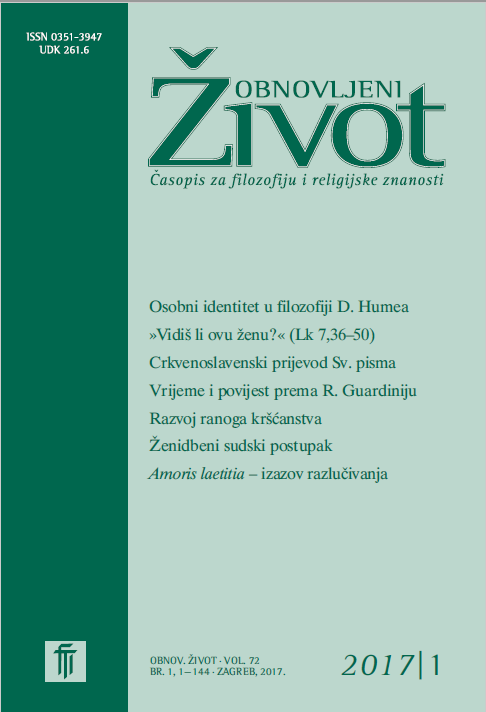The Meaning of Time and History According to Romano Guardini
Keywords:
time, history, epoch, person, freedom, incarnated LogosAbstract
This article aims to put forward some of Romano Guardini’s thoughts on time and history, his perception of meaning being specifically Christian. In order to decipher the manner in which to evaluate time as history, which may indeed be profoundly meaningful, Guardini touches upon some ideas and concepts for discussion purposes in an endeavour to discover the deeper meaning of ordinary temporal successiveness of moments and facts from which conclusions can be drawn only from an inner–worldly perspective, for instance as the „eternal return of the same.“ How, in fact, is one to accept one’s own time in an epoch without fleeing into the erroneous conservativism of a previous state or, on the other hand, an illusory idea of a utopic future? Guardini exemplifies a positive view which derives from his concept of the human person as a historical and free being. Man is a person and is bound to struggle in the world in order to avoid succumbing to a pessimistic or fatalistic outlook, regardless of momentary adverse social pressures which may negate his dignity. In point of fact, this proceeds from man’s dependency upon God. It is only through the incarnated Logos that the true meaning of history is revealed, for it is He alone who shall pass His righteous judgement upon that which has occurred in time.
Downloads
Published
Issue
Section
License
Jednom prihvaćeni članak obvezuje autora da ga ne smije objaviti drugdje bez dozvole uredništva, a i tada samo uz bilješku da je objavljen prvi put u Obnovljenom životu. Uredništvo će obavijestiti autora o prihvaćanju ili neprihvaćanju članka za objavljivanje.
Članci objavljeni u časopisu se, uz prikladno navođenje izvora, smiju besplatno koristiti u obrazovne i druge nekomercijalne svrhe.


